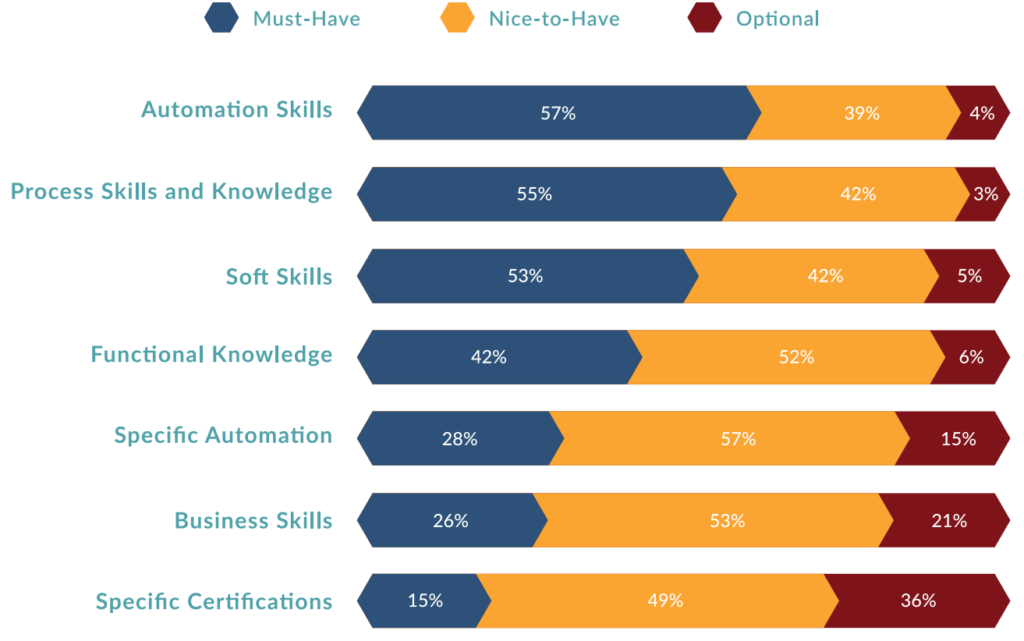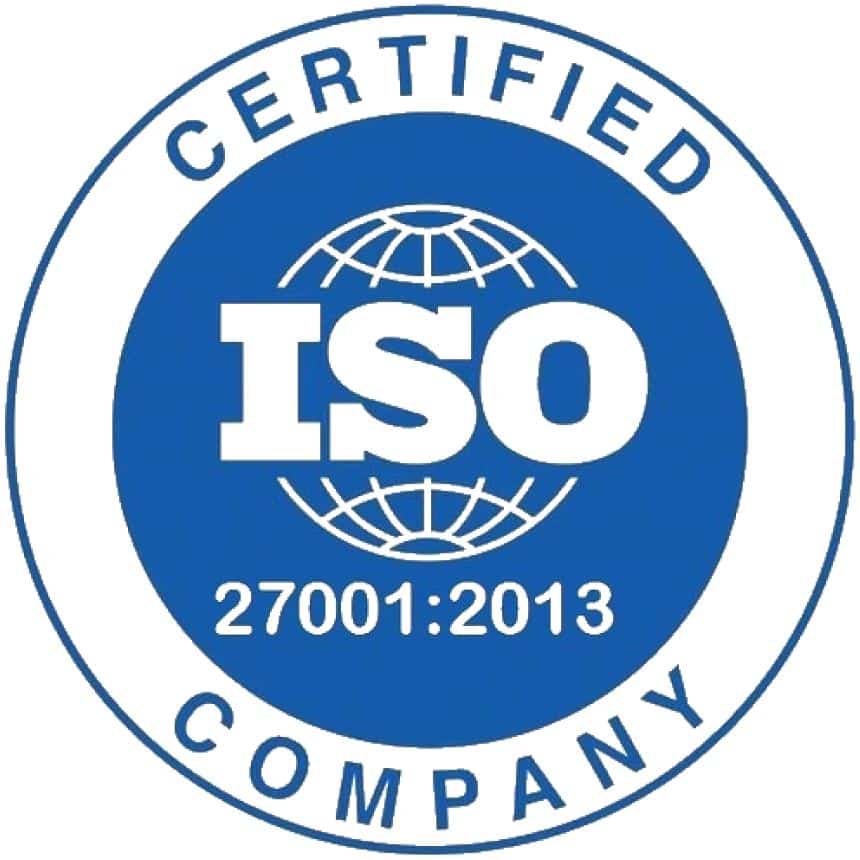
Hire DevOps Engineers
Hire DevOps engineers that think in terms of value, solutions and resolving actual issues. Rapidly fill the gap in your engineering team without having to hire, train, and maintain long-term salaries.
Get a QuoteHow we hire DevOps engineers
1. Prescreening
The DevOps hiring process begins with a screening of candidates' CVs. Selected candidates are then invited to take part in a video interview with a recruiter. Our HR expert checks the DevOps’ soft skills and talks them through the information about our company.
2. English level check
Seeing as Relevant works with clients from all over the world, we hire DevOps engineers who have high-level practical skills of the English language. Our English teacher assists us in assessing candidates' English proficiency.
3. Tech interview
If the candidate has successfully passed the previous rounds, we move to a more detailed technical assessment. The third stage of hiring a DevOps specialist is an interview with our senior developers, tech lead and, project managers, during which they assess the candidates' hard skills. We usually include practical tasks to determine how the candidate will handle real-life situations.
4. Final interview with you
We will provide you with a list of several DevOps engineers to choose from. You'll have a chance to talk with them and select those who best match your needs.
- • Cloud: AWS, GCP, Azure
- • Version control: Git
- • Container orchestration: Kubernetes, Amazon ECS, Hashicorp Nomad
- • CI/CD: Jenkins, GitHub Actions, GitLab CI/CD, CircleCI, Argo CD, Azure DevOps
- • Automation: Ansible, Vagrant, Packer
- • IaC: Terraform, CDK, AWS CloudFormation, Pulumi
- • Monitoring and logging: New Relic, AWS CloudWatch, Azure Monitor, DataDog, Prometheus, Grafana, Elasticsearch, Splunk
- • Code quality and code security: SonarQube, Veracode, Clair
How we differ
92% of our company – senior and middle engineers
We hire only strong middle and senior DevOps engineers and no juniors.
9/10 client satisfaction score
Our clients highlight our ability to build great personal relationships with them, except for the excellent code quality.
20% employee turnover rate
We are interested in long-term relationships. Our employees stay with our clients and us for years.
Seamless integration
After you hire DevOps engineers from us, we easily integrate them into your ongoing work without interrupting your processes.
Risk management
Identifying errors early results in up to 30% fewer defects across the product lifecycle.
Resiliency
Our team adjusts to your business model and ensures changes are available across systems.
Let's build something exceptional together. Your journey starts with just one click!

Petro Diakiv
Business Development Manager

Anna Dziuba
VP of Delivery
What to Expect Next?
- Our BizDev managers will reach out within 24 hours to dive deeper into your requirements and discuss your project idea.
- If needed, we'll sign an NDA to ensure your project details are fully protected.
- Our skilled software development experts will provide tailored advice and suggest the best development path.
Products we deployed
Engagement models
Decide which model best suits your project
Dedicated team
Extend your staff with remote specialists that are fully under your control. We take care of their administration and professional development.
Learn moreProduct development
Bring your idea and commission a product. We handle everything from business analysis through the development and the product launch.
Learn moreFAQ
When it comes to hiring DevOps engineers, there are three popular options: freelance websites, recruiting agencies, and outsourcing companies.
Hiring Freelancers
Freelancer platforms like Upwork, Freelancer.com, YouTeam, Toptal are very popular when it comes to finding specialists in the IT sector. The principle behind these platforms is the same. You set up an account, create a job post, choose a freelancer (or a team of freelancers), and start a contract.
Pros of hiring a freelancer:
- Much cheaper rates;
- Reviews from previous clients;
- Wide range of specialists;
- Great for minor changes and short-term projects.
Cons of hiring a freelancer:
- No guarantees;
- No formal contract signed;
- Possible language barrier;
- Different time zones;
- Management complexities causing more harm than good.
Working with Recruiting Agencies
Another widely used option is partnering with recruitment agencies. Here’s how it works. You let the agency know what positions you’d like to apply for and they provide the recruitment services to the extent that you prefer, from identifying qualified people to conducting interviews and candidates selection. The cost of their assistance may vary based on their service model:
- Executive search ‒ the employer pays an up-front fee for assistance filling a role
- On-demand recruitment ‒ flexible support at an hourly rate
- Recruitment process outsourcing ‒ the employer entrusts the entire recruiting function to the agency.
Pros of working with recruitment agencies
- More time for important strategic tasks;
- Access to more qualified candidates.
Cons of working with recruitment agencies
- The cost of recruiting;
- Lack of control;
- Indirect candidate access;
- Potential communication issues.
Hiring DevOps Engineers through IT Companies
This is probably the best option for projects of any size and budget. It’s less expensive than hiring in-house employees, but just as reliable.
Pros of hiring DevOps engineers through IT companies
- Cost-effectiveness;
- Guaranteed expertise and reliability;
- Dedicated manager for each project;
- General team experience and quality work.
Cons of hiring DevOps engineers through IT companies
- Different time zones;
- Possible language barrier.
Outsourcing individual experts or even the entire teams through IT companies is super convenient. They are not only qualified but do have all the necessary technology in place. All you need to do is to share the details of your project and cooperate throughout the process. Sounds like a plan, doesn’t it? But make no mistake, there are still some pitfalls to beware of.
The truth is, finding the right outsourcing company can be a challenge. You’ve probably heard all these urban legends about the worst outsourcing experience. However, if you take this process seriously, your project will end up in good hands. To find a reliable IT company, go beyond Google search. Places like Clutch will help you find accurate information about each team and referrals from colleagues will encourage you to make the best choice.
Our company also provides team extension services.
It’s super simple. First, we gather the client’s project requirements, agree on the desired workflow, team size, deadlines, and deliverables. Next, we assemble the team, select the best-suited experts, show you CVs, invite you to perform the final interview, and smoothly integrate into your ongoing project. As a result, you complement your team with much-needed experts and finalize all the work successfully without the hassle of any recruitment processes.
Main responsibilities of DevOps engineer include:
- Application and Infrastructure planning, testing and development. DevOps engineer’s job is to fulfill the immediate business needs. In their day-to-day job, DevOps look at the individual functions of the cloud environment and writes code to scale them. To pull this role off, the person needs to be able to write small snippets of code in several languages. They also must be skilled in testing, and big-pictured planning (integrations and additions across many systems).Maintaining CI/CD pipelines. DevOps engineers are responsible for building a CI/CD pipeline and making sure that all the processes, people, and tools work in sync. They can spot areas of improvement and optimize the pipeline on the go. When DevOps engineer does the job well, the team can continuously test without hampering overall speed.
- Automation implementation. Automation is the reason as to why organizations hire DevOps engineers in the first place. DevOps are responsible for its implementation and their job is to boost the efficiency of both engineering and IT. Meanwhile, companies can focus on more strategic tasks.
- Ensuring security. DevOps engineer’s job is to support the users of the infrastructure they develop. The best way to ensure safety is to build reliable software, from the beginning. Writing secure code that will be protecting the cloud against hackers and viruses is a valuable skill for a DevOps engineer.
- Ongoing monitoring. Collecting data and understanding how to effectively act on it is crucial for every organization. That’s why DevOps engineers monitor their apps and infrastructure to detect and oversee the blind spots, observe them, and troubleshoot possible issues.
Clearly, the skillset required for such professionals is far above what is required for the average employee. In one of the surveys conducted by DevOps Institute for their Enterprise DevOps Skills Report, C-suite executives, managers, and individual contributors were asked to rate the importance of the different skill categories for their DevOps team members.
Take a look at the result.

The expectations are generally pretty high, but they vary slightly based on the desired experience level.
Are there any differences in job requirements for, say, junior and senior DevOps engineer? Most certainly, there are. Let’s examine them closer.
Skills Required for Junior DevOps Engineer
- Understanding of Agile, Waterfall, SDLC.
- Understanding of version control tools.
- Knowledge of CI/ CD tools.
- At least one programming language.
- Understanding of Docker images, containers, and registries.
- Knowledge of Infrastructure Management tools.
- Understanding of cloud computing.
- Good communication skills in English (written, spoken).
- Soft skills (self-motivated, detail-oriented, strong team player).
- Skills Required for Middle DevOps Engineer
- Solid knowledge of CI/ CD tools.
- Good knowledge of version control tools.
- Good experience with bash scripting/troubleshooting.
- Knowledge of 2+ programming languages.
- Solid understanding of cloud computing services.
- Infrastructure Management skills.
- Proficiency in automation tools.
- Good communication skills in English (written, spoken).
- Soft skills (self-motivated, detail-oriented, strong team player).
Skills Required for Senior DevOps Engineer
- Proven expertise in using CI/ CD tools.
- Proficient knowledge of version control tools.
- Experience with bash scripting/troubleshooting.
- Knowledge of 3+ programming languages.
- Proficiency in cloud computing services.
- Expert-level Infrastructure Management skills.
- Proficiency in automation tools.
- Excellent communication skills in English (written, spoken).
- Soft skills (self-motivated, detail-oriented, strong team player).
When searching for an ideal DevOps engineer, pay special attention to crafting an appealing and to-the-point job description. It will save you the hassle of turning down the applications that don’t fit the requirements.
Below is the example of a DevOps engineer job description you could use as a reference in your search.
Introduction
[Your company name] is a company that specializes in [...]. Right now, we are looking for [junior/ middle/ senior] level DevOps Engineer to fill in a newly vacant position in our team. You will work at the intersection of Development and Operations to design, code, test, and optimize great solutions for clients.
Job Role and Responsibilities
Who You Are:
- A highly motivated person with a passion for building scalable and efficient products.
- You have very strong communication skills in English, both written and spoken.
- You are a great problem-solver.
- You are [familiar with/have a solid understanding of/ expert in] operating systems such as Linux, Windows, iOS and Android.
- You have a [basic/ solid/ expert] understanding of programming in languages, such as [...].
- You are [interested in/ understand/ the expert in] Design Thinking Methodology and Agile.
What You’ll Do:
- Build, deploy, configure, and maintain systems in [...] environment.
- Work closely with the development team to ensure a continuous integration environment.
- Optimize and automate processes, using tools like [...].
- Troubleshoot and solve issues in development, testing, and production.
- Required Expertise
- Must have [basic/ solid/ expert] knowledge in [Java, Jenkins, Puppet, Docker, Bash, Python, Ruby, etc.]
DevOps is a versatile expert whose main function is to help different development teams improve specific parts of code and enable companies to improve their platforms based on what they already have.
Interestingly, DevOps as a job title had been created by the industry, which means that there isn’t as such a step-by-step process on how to undertake this career. Whether or not someone can apply for a DevOps position depends on their skills and experience with coding and working in different teams.
In short, a DevOps engineer is someone who:
- Understands the Software Development Life Cycle (SDLC).
- Has a solid grasp of different automation testing tools for developing continuous integration and continuous delivery (CI/CD) pipelines.
- Can successfully manage the entire DevOps team.
Do you know that we helped 200+ companies build web/mobile apps and scale dev teams?
Let's talk about your engineering needs.
Write to us











